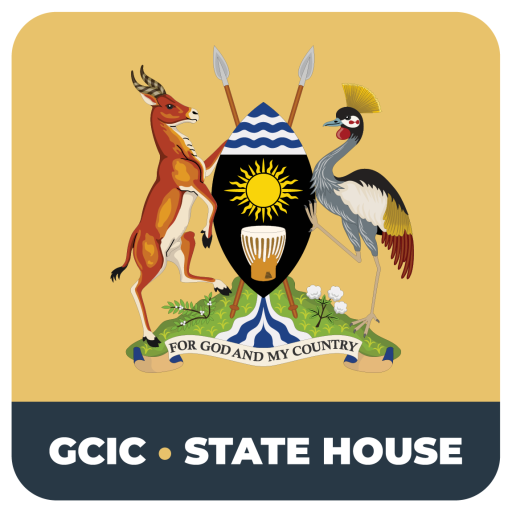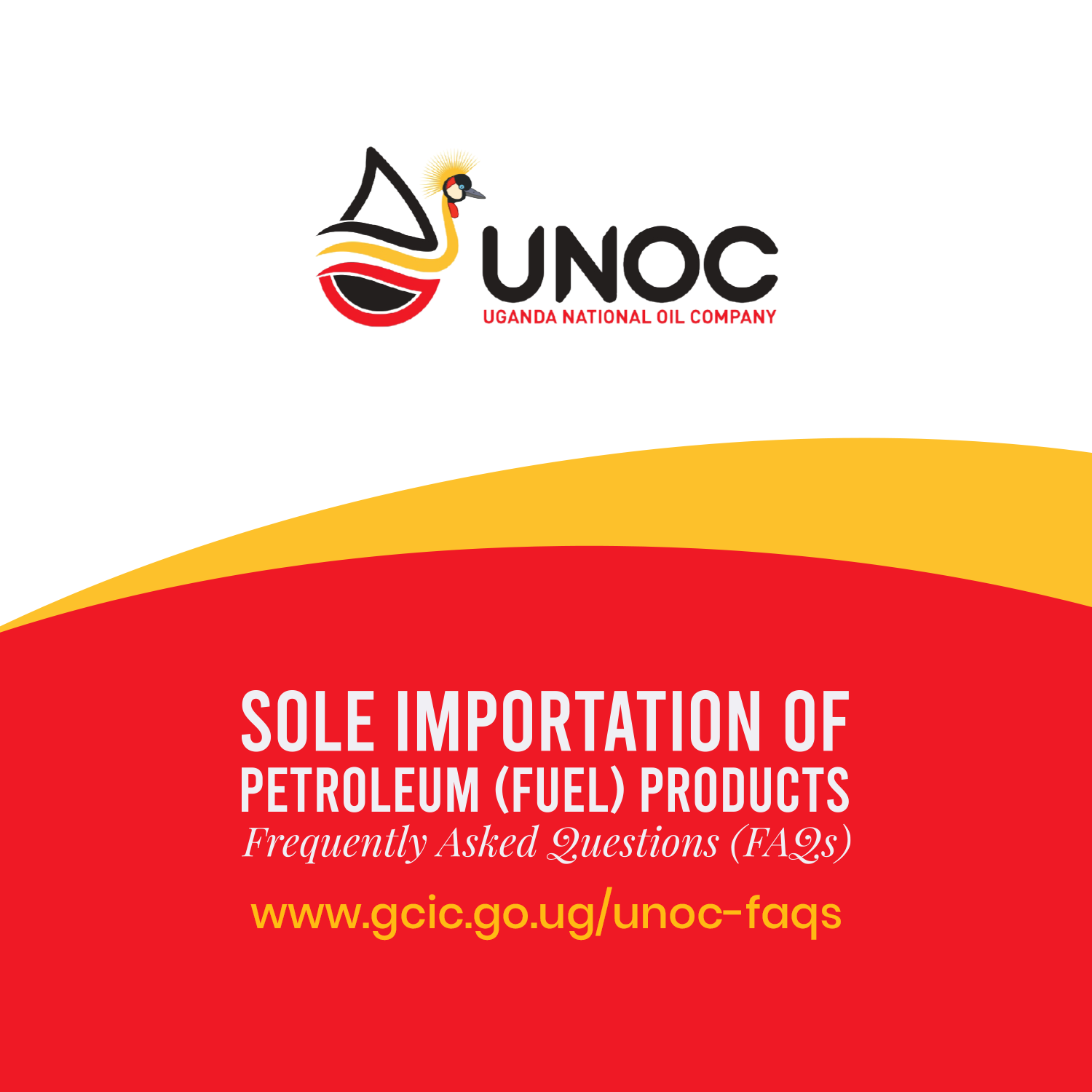STATE OF THE ECONOMY
Economic Growth
- There is continued expansion of Uganda’s economy. This is affirmed by the recently released Quarterly GDP outturns for the second quarter of calendar year 2024 (April – June 2024) which showed that the economy expanded by 6.6%.
- Additionally, the high-frequency indicators of economic activity show improvements in the level of economic activity and positive sentiments by the private sector about doing business in the economy going forward.
- The Composite Index of Economic Activity (CIEA) grew to 166.63 in August 2024 from 166.03 in July 2024. Similarly, both the Purchasing Managers Index (PMI) and the Business Tendency Index (BTI) were recorded at 54.2 and 57.8 respectively in September 2024. This is above the threshold of 50 implying that the business health and sentiments in the private sector are positive.
- With the Government’s continued investment in the ATMS to grow the economy ten-fold and other strategic interventions, the economy is poised to grow between 6 – 6.5% this financial year. In the subsequent years, economic growth is projected to be higher, driven by interventions we are implementing under the ten-fold Growth Strategy.
Inflation and Exchange rate
- Inflation remains subdued, with annual headline inflation declining to 3.0% for the year ended September 2024. This is mainly driven by good harvests of food crops, resulting in lower prices for food items. Additionally, the central bank’s monetary policy stance has played a part in ensuring price stability.
- The Ugandan Shilling has maintained relative stability against the US dollar (USD) with a gradual appreciation since March 2024 except for the month of August 2024 when it slightly depreciated. This stability has been partly supported by increased export revenues, particularly from coffee, despite strong corporate demand for financing imports and other obligations.
- In September 2024, the Ugandan Shilling appreciated by 0.33% against the USD to an average mid-rate of Shs 3,711.31 per USD compared to an average mid-rate of Shs 3,723.65 per USD in August 2024.
External Sector
- Trade Balance: As of August 2024, Uganda’s merchandise trade deficit narrowed to USD 314.1 million from USD 342.8 million in August 2023. This was driven by an increase in export receipts, which more than offset the increase in the import bill. Total exports in August 2024 amounted to USD 789.58 million, implying a 17.9% growth on the USD 669.69 million the same month last year. Coffee remains one of Uganda’s major exports, increasing by 82.2% from USD 121.64 million to 221.63 million in August 2023 and 2024 respectively.
- Remittances for FY 2023/24 amounted to USD 1,292.76 million. This performance marks the return to pre-COVID remittance numbers as the global economy continues to recover from the shocks experienced over the past few years.
- Foreign Direct Investment (FDI) inflows to Uganda for FY 2023/24 reached a record high of USD 3,034.11 million, an increase from USD 2,950.60 recorded in FY 2022/23. FDI inflows have increased steadily year on year, largely reflecting the ongoing activity in the oil and gas sector as the country prepares for its first oil come FY 2025/26.
Debt
- As of 15th October 2024, the Government had issued domestic debt amounting to Shs 6.825 trillion. Of this, Shs 3.475 trillion was for refinancing maturing debt (roll-over) and Shs 3.350 trillion was for financing general budget activities (net domestic financing/NDF). The issuance so far represents 32% of the issuance target for FY 2024/25. There was a marginal frontload of domestic debt issuance into the first half of the fiscal year to cater for Government financing requirements and at the same time smoothen the seasonality reduction of domestic revenues in Q1.
- Looking ahead, the inflation outlook is good and the Central Bank in response reduced the CBR from 10% to 9.75% on 7th October 2024. We, therefore, expect interest rates on Government securities to be steady with the possibility of reduction. We shall not borrow at any cost; we shall borrow only when the cost is affordable. I reiterate, that the Government debt position is sustainable and within internationally recognized benchmarks.
- APPROVED BUDGET FOR FY 2024/25
- The approved Budget for FY 2024/25 amounts to Shs 72.137 trillion as summarised below:
| Category | Amount (Shs Billion) | |
| i. | Wage | 7,934.75 |
| ii. | Non-Wage | 13,633.24 |
| iii. | GoU Development | 5,902.58 |
| iv. | External Financing – Devt | 9,582.94 |
| v. | Debt and Treasury Operations | 34,342.16 |
| vi. | Arrears | 199.93 |
| vii. | Local Revenue | 293.90 |
| viii. | ICJ award to DRC | 247.00 |
| Total Budget | 72,136.50 |
- The GoU discretionary Budget (excluding debt and treasury operations, external financing, and Local Revenue) is Shs 27.917 trillion.
- HIGHLIGHTS OF EXPENDITURE LIMITS FOR THE SECOND QUARTER OF FY 2024/25
- The Q2 Expenditure Limits for FY 2024/25 were derived from the quarterly Work Plans and Procurement Plans of Ministries, Departments, and Agencies taking into consideration the projected resource inflows.
- For this Quarter (October – December 2024), Shs 15.99 trillion, has been released representing 22.2% of the approved budget as follows:
| Category | Q2 Release (Shs billion) | % of Approved Budget | Cumulative |
| Wage | 1,991.21 | 25.1% | 50.2% |
| Non-Wage | 3,714.34 | 27.2% | 53.1% |
| GoU Development | 2,040.71 | 34.6% | 44.3% |
| External Financing – Devt | 2,557.95 | 26.7% | 53.4% |
| Debt & treasury operations | 5,600.09 | 16.3% | 36.4% |
| Arrears | 14.03 | 7.0% | 100% |
| Local Revenue | 73.47 | 25.0% | 50.0% |
| ICJ award to DRC | 0.00 | 0% | 100% |
| Total | 15,991.80 | 22.2% | 44.5% |
- The key highlights of the release per category are as follows:
Wages and Salaries
- Shs 1.991 trillion to cater for wages and salaries across Government;
Non-Wage Recurrent
- Shs 281.73 billion for Pension and Gratuity;
- Shs 145.32 billion to Local Governments;
- Shs 103.32 billion to all Public Universities, Uganda Management Institute, and Law Development Centre in line with the semester requirements;
- Shs 37.37 billion for Examination Boards i.e. Uganda National Examination Board (UNEB) and Uganda Business and Technical Examinations Board (UBTEB);
- Ministry of Gender, Labour and Social Development to cater for Social Assistance Grants for Empowerment (SAGE) requirements – Shs 48.94 billion;
- Health institutions’ operational funds have been released for:
- Referral Hospitals including Mulago and Butabika Hospitals – Shs 36.97 billion;
- Uganda Cancer Institute (UCI) – Shs 19.93 billion;
- Uganda Heart Institute (UHI) – Shs 7.17 billion;
- Uganda Blood Transfusion Services (UBTS) – Shs 4.14 billion;
- Subventions under Ministry of Health (MoH) – Shs 21.85 billion for medical interns’ salaries;
- In addition, Shs 299.74 billion has been released to National Medical Stores (NMS) to purchase essential drugs and medicines.
- Operational funds for Security institutions:
- Ministry of Defense and Veteran Affairs (MoDVA) – Shs 307.26 billion;
- Uganda Police Force – Shs 64.56 billion;
- Uganda Prisons Services – Shs 56.50 billion;
- Internal Security Organisation – Shs 28.08 billion; and,
- External Security Organisation – Shs 23.41 billion.
- Parliament – Shs 251.52 billion;
- Judiciary – Shs 73.15 billion;
- Auditor General – Shs 13.48 billion;
- Science Technology and Innovation – Shs 60.26 billion;
- Revenue generating entities i.e. National Citizenship and Immigration Control – Shs 67.07 billion; Uganda Registration Services Bureau – Shs 13.26 billion; National Lotteries and Gaming Board – Shs 2.39 billion; National Environment Management Authority – Shs 12.34 billion; and, Uganda National Bureau of Standards – Shs 11.75 billion.
Development Budget
- Shs 4.599 trillion has been provided to cater for the development requirements i.e. both GoU and External financing. These funds have been allocated as follows;
ATMS
- Agro-industrialisation – Shs 385.22 billion for interventions under the Ministry of Agriculture, Animal Industry and Fisheries; Dairy Development Authority; Cotton Development Organization; Uganda Coffee Development Authority; National Agricultural Research Organization; National Animal Genetic Resource Centre and Data Bank; Prisons; and, Ministry of Water and Environment i.e. Foot and Mouth disease and Anti-tick vaccines, PDM related interventions, restocking ranches;
- Tourism development – Shs 14.65 billion for ongoing projects in the Ministry of Tourism, Wildlife and Antiquities i.e. Source of the Nile and Uganda Tourism Board;
- Mineral-Based Industrial Development including oil and gas – Shs 55.78 billion for interventions under the Petroleum Authority of Uganda and Kabalega International Airport;
- Science, Technology, and Innovation including ICT – Shs 43.93 billion for interventions under STI and Ministry of ICT and National Guidance.
Infrastructure
- Ministry of Works and Transport – Shs 479.07 billion to cater for Standard Gauge Railway, Meter Gauge Railway, subventions and District, Urban and Community Access Roads;
- Uganda National Roads Authority (UNRA) – Shs 392.51 billion;
- Ministry of Energy and Mineral Development (MEMD) – Shs 290.54 billion to cater for Rural electrification and transmission lines;
- KCCA – Shs 193.86 billion (o/w Shs 115 billion will be drawn from the Petroleum Fund);
Human Capital Development
- Education – Shs 156.49 billion for interventions under the Ministry of Education and Sports, UNEB, UBTEB, and Universities;
- Health – Shs 450.91 billion for MoH, UCI, UHI. These funds will support GAVI, Global Fund and outstanding obligations. Regional hospitals including Mulago and Butabika Hospitals were allocated Shs 8.15 billion;
- Social development – Shs 53.28 billion for MoGLSD, EOC, UHRC;
- Local governments – Shs 400.88 billion.
Non-Tax Revenue (NTR) collecting Votes
- Shs 11.31 billion allocated to the NTR votes of Uganda Registration Services Bureau (URSB), National Citizenship and Immigration Control, Uganda National Bureau of Standards, and Law Development Centre (LDC).
Security
- MoDVA – Shs 463.97 billion;
- Uganda Police Force – Shs 90.84 billion;
- Uganda Prisons Service – Shs 19.36 billion;
- Shs 11.13 billion for Internal Security Organization and External Security Organization;
- Directorate of Government Analytical Laboratory – Shs 18.8 billion for the completion of the DNA bank and pending certificates;
- National Identification and Registration Authority – Shs 75.77 billion to cater for the advance payment for the National Security Information System.
Statutory
- Contract staff salaries – Shs 20.81 billion;
- Judiciary (Courts of Judicature) – Shs 22.20 billion;
- Electoral Commission (EC) – Shs 18 billion;
- Parliamentary Commission – Shs 22 billion;
- National Planning Authority – Shs 4.31 billion;
- Directorate of Public Prosecution – Shs 5.00 billion.
Others
- Ministry of Justice and Constitutional Affairs – Shs 24.10 billion for the completion of JLOS House;
- Inspectorate of Government – Shs 19.06 billion for the completion of IG Headquarters;
- Ministry of Foreign Affairs – Shs 3.04 billion as requirement for security equipment and to repair the lifts;
- All Missions – Shs 29.94 billion;
- Office of the Prime Minister – Shs 14.63 billion.





